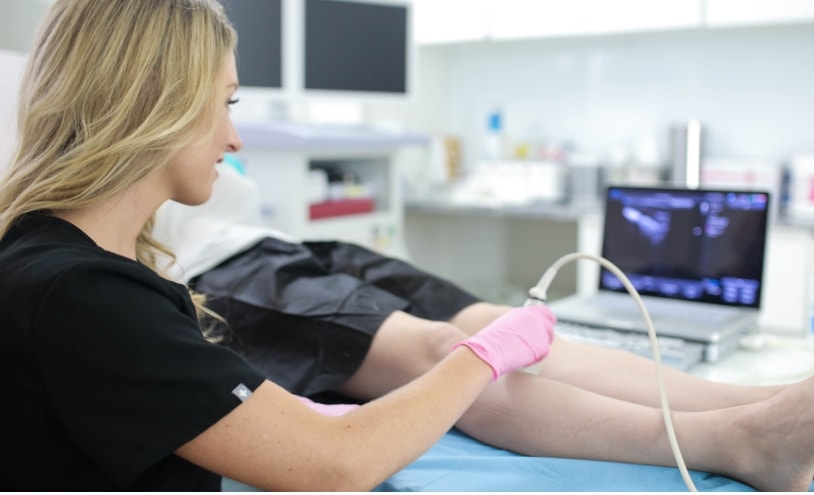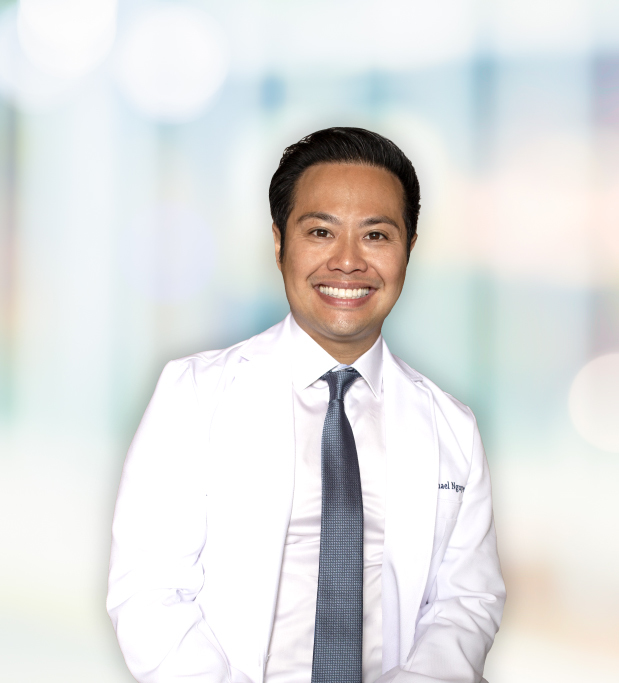What is a Varicose Vein Specialist Called? And Other FAQs About Vein Doctors
What is a varicose vein specialist called?
The official terminology for a varicose vein specialist is “phlebologist.” The word “phlebologist” comes from “phlebology,” which is the branch of medicine concerned with the prevention, diagnosis, and treatment of vascular conditions, such as varicose veins, spider veins, restless legs syndrome, leg ulcers, deep vein thrombosis, and insuficiencia venosa crónica. Phlebologists use cutting-edge technologies to visualize and identify the root cause of your vein problems, following which they curate a personalized vein treatment plan.

Vein Treatment Clinic is a group of state-of-the-art leg vein clinics across the United States. Our vein treatment clinics are led by board-certified vein doctors specializing in the latest minimally invasive spider vein and varicose vein treatments, such as sclerotherapy and radiofrequency ablation. We have vein treatment centers in New York City, Long Island, Maryland, San Jose, San Diego, and Bergen County in New Jersey. You may visit your nearest vein treatment clinic to meet our board-certified vein doctors.
Our vein treatment clinic in the DC Metro Area is located at 10215 Fernwood Rd, Suite 301, Bethesda, Maryland. The vein clinic is just outside Washington, DC, in Silver Spring. You may schedule an appointment to explore your spider vein and varicose vein treatment options.

What type of doctor treats varicose veins?
The type of doctor specializing in the diagnosis and treatment of varicose veins is officially known as a “phlebologist.” But you can call them vein doctors, vein specialists, vein experts, vein physicians, or vascular doctors. Vein doctors can come from all fields of medicine, such as dermatology, cardiology, anesthesiology, internal medicine, etc. Most physicians need to complete a few simple written examinations to call themselves phlebologists, so the barrier to entry into vein care is pretty low.
To find the best vein doctors in your region, you must look for board-certified vein specialists. The American Board of Venous and Lymphatic Medicine officially certifies the country’s top 1% of vein doctors for their contributions to vein care. To get board-certified, vein doctors must complete challenging residency programs and fellowships in fields related to vein care, and they must stay abreast of the latest developments in vein care.
When looking for board-certified vein doctors, you can rest assured that your vein care is handled by the country’s best experts. Our state-of-the-art vein treatment clinics are always led by Harvard-trained and board-certified vein doctors with years of specialized training in vascular imaging and the latest minimally invasive spider vein and varicose vein treatments. Furthermore, our vein doctors always diagnose the root cause of your vein problems before curating a personalized treatment plan, ensuring optimal results.
Varicose veins vs. spider veins: what’s the difference?
People are often confused about the difference between varicose veins and spider veins. While both spider and varicose veins are damaged blood vessels visible on the skin’s surface, usually indicative of poor blood circulation, they’re slightly different. Spider veins are dense clusters of damaged blood vessels and broken capillaries that appear just underneath the skin’s surface — they’re extremely thin and don’t bulge outwards. Varicose veins are dense blood vessels that protrude from the skin’s surface in a twisted, knotted, and tangled form.
Why do varicose veins form?
Spider veins and varicose veins are symptomatic of chronic venous insufficiency, a dangerous underlying circulatory disorder. Healthy veins contain valves that act as one-way doors, allowing blood to flow towards the heart but not backward due to gravity. Chronic venous insufficiency is a medical condition wherein the vein valves malfunction or collapse, leading to backward blood circulation due to gravity. Over time, blood accumulates in the leg veins, leading to increased vascular dilation and the formation of spider and varicose veins.
What are the signs indicating I need to see a vascular doctor?
You need to see a vascular doctor if you notice any signs or symptoms of chronic venous insufficiency, the root cause of most vein problems. The earliest signs of vein disease are fairly mild and benign, such as leg heaviness, restless leg syndrome, frequent leg cramps, and leg pain, especially at the end of the day or after long periods of sitting or standing. The first visible signs of vein disease are usually spider veins, following which you may also develop varicose veins. If you don’t seek treatment promptly, you may also notice leg ulcers, skin discoloration, and the symptoms of deep vein thrombosis. If you notice any signs and symptoms, please visit your nearest vein doctor.
What are the best treatments for varicose veins in the legs?
If you have varicose veins in your legs, you must consult a vein doctor specializing in minimally invasive spider vein and varicose vein treatments. The vein doctor will administer duplex ultrasound tests to visualize the blood flow in your leg veins, following which they’ll curate a personalized treatment plan. If you have underlying chronic venous insufficiency, your vein treatment plan may start with radiofrequency ablation or endovenous laser ablation — these procedures channel thermal or laser energy to close and destroy the diseased vein.
Once the diseased vein is closed, the accumulated blood automatically reroutes into healthier leg veins, restoring optimal blood circulation to the heart. But if you don’t have chronic venous insufficiency, the vein doctor may recommend foam sclerotherapy, ambulatory phlebectomy, or sclerotherapy to remove the superficial varicose veins and spider veins. During ambulatory phlebectomy, the vein doctor manually removes the varicose veins through small incisions on the skin’s surface. You can resume your daily activities immediately.
Vein Treatment Clinic is a state-of-the-art spider vein and varicose vein treatment center specializing in cutting-edge minimally invasive vein treatments. Our medical center is led by Harvard-trained and board-certified vascular vein doctors. If you have the signs and symptoms of vein disease, please schedule an appointment at your nearest vein clinic in Maryland, New York, Long Island, New Jersey, or California today.
Book a Consultation
Scheduling a consultation with one of our vein treatment experts is one of the best ways to determine the proper resolution for your varicose veins. The treatments can include sclerotherapy, laser or radiofrequency ablation, a medication called Varithena, or procedures such as Venaseal, or Clarivein.
Dr. Andrew Cortes
Doctor de venas en New Jersey
SUNY Downstate Medical Center
Dr. Sahil Patel
Doctor de venas en New Jersey
Rutgers University
Dr. Billy Schoenfeld
Doctor de venas en San Diego
Harvard University
Dr. Juan Montoya
Doctor de venas en New York
Yale University
Dr. Carly Guthrie
Doctor de venas en San Diego
Harvard University
Dr. Shane Volney
Doctor de venas en New York
Harvard University
Dr. Laura Lombardi
Doctor de venas en New York
Harvard University
Dr. Kamran Saraf
Doctor de venas en Maryland
Georgetown University
Dr. Sareh Rajaee
Doctor de venas en New York
Yale Medical School
Dr. Zalekha Shair
Doctor de venas en Long Island
New York Medical College
Dr. Todd Kobrinski
Doctor de venas en New Jersey
George Washington University
Dr. Walter Lech
Doctor de venas en California
Harvard University
Dr. Jeffrey Deygoo
Doctor de venas en New Jersey
George Washington University
Dr. Lisa Alford
Doctor de venas en Maryland
McGill University
Dr. Jasmine Koo
Doctor de venas en San Diego
University of Washington
Dr. Michael Nguyen
doctores de venas
Harvard University
Dr. Caroline Novak
doctores de venas
Northwestern University
Dr. Kimberly McFarland
Doctor de venas en California
SUNY Downstate Medical Center
Dr. Jonathan Hemli
Doctor de venas en New York
University of Pennsylvania
Dr. Gulshan Sethi
Doctor de venas en Long Island
University of Buffalo
Dr. Farshid Etaee
Doctor de venas en California
Yale-New Haven University
Dr. Jack Bulat
Doctor de venas en New York
Harvard Medical School
Dr. Joshua Kindelan
Doctor de venas en California
Uniformed Services University of the Health Sciences
¡Trata tus venas várices!
Sabemos que los seguros de salud pueden ser confusos, así que te ayudaremos a verificar si estás cubierto.








